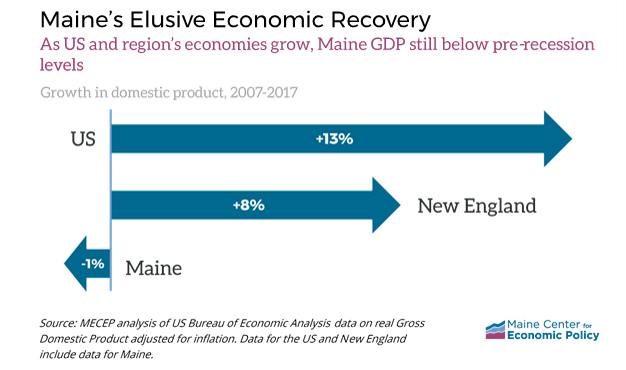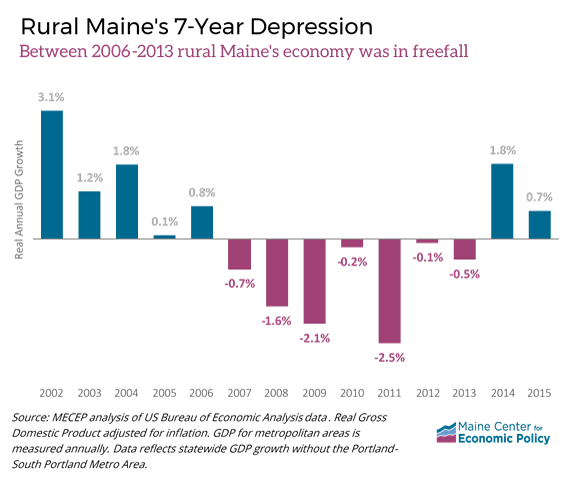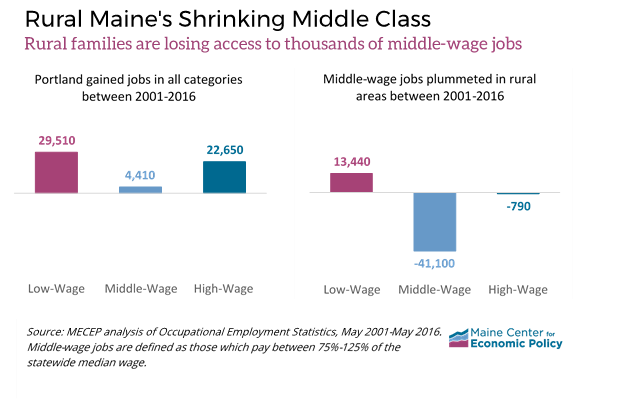FOR IMMEDIATE RELEASE:
September 19, 2017
CONTACT:
Marpheen Chann
mchann@mecep.org
(207) 620-1128
MECEP Report: State lawmakers must chart a different course to overcome Maine’s “elusive” economic recovery
Rural Maine suffered a seven-year recession between 2006 to 2013 and has lost more than 40,000 middle wage jobs since 2001
|
AUGUSTA, MAINE (September 19, 2017) – The Maine Center for Economic Policy (MECEP) today released its report, the State of Working Maine 2017, revealing that Maine continues to struggle to recover from the Great Recession. Maine’s economy is still 0.9% below what it was in 2007 before the Great Recession. In contrast, the entire US economy grew 12.7% and the overall New England economy grew 7.9% over the past decade.
“While the nation has bounced back from an historic recession, for Maine recovery remains elusive and for rural Mainers unattainable,” said Garrett Martin, MECEP’s executive director. “Policymakers in Augusta have done little to improve Maine’s economic prospects and, in many instances, have undermined them by squandering available resources and failing to invest in the state’s people and communities. The result has been higher property taxes, fewer good paying jobs, less economic security for families, insufficient funding for Maine’s schools, roads, and broadband infrastructure, and a hollowing out of rural communities.”
“Now more than ever Maine needs to increase investments in our people and our communities to begin repairing the damage of past decisions,” Martin continued. “The path forward requires a commitment to leverage federal resources, reject costly tax cuts for the wealthy, and curb race-to-the-bottom policies that undermine our ability to invest in Maine’s economy. Lawmakers must reject austerity, invest in a world class education for Mainers, and build a modern infrastructure to spark and nurture an economic revival that benefits all Mainers, regardless of where they live.”
The State of Working Maine 2017 presents a comprehensive analysis of the economic, demographic, and workforce trends that impact the quality and quantity of jobs in Maine.
MECEP’s major findings reveal strong correlations between a decline in labor force participation among white men without college degrees — chronic health conditions, alcohol and substance misuse, and “deaths of despair” (suicides, alcohol- and drug-related fatalities).
Other findings include:
To read the full report, please click HERE.
###
|





